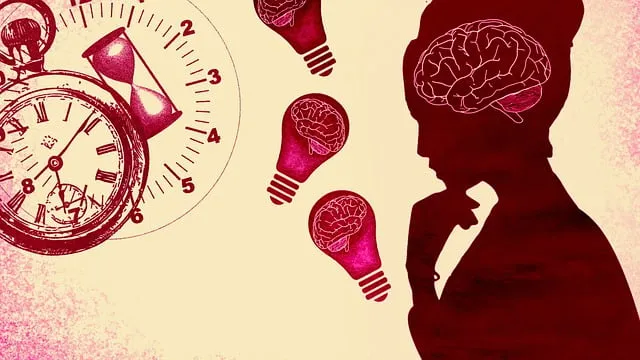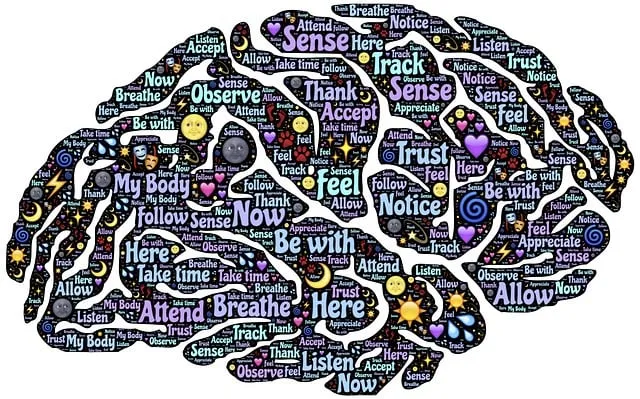Kaiser's inpatient mental health unit in Northglenn offers Social Skills Training (SST), a specialized therapy for individuals with anxiety or depression, empowering them to improve social interactions. This program uses role-playing and structured activities to teach communication, empathy, and conflict resolution. Inpatient programs at Kaiser Northglenn provide 24/7 care, evidence-based therapies, and group sessions focusing on emotional regulation and interpersonal relationships. SST is a promising approach for managing symptoms related to isolation, but requires adaptability for diverse mental health needs. Integrating SST into comprehensive care improves risk management, reduces relapse triggers, enhances well-being, and contributes to Depression Prevention initiatives. Kaiser Northglenn's patient-centered care includes Mental Health Awareness and Cultural Sensitivity, addressing unique obstacles in interpreting social cues for diverse patients.
Social skills training is a powerful tool in the management of mental health conditions, offering individuals the chance to navigate social interactions with confidence. This article explores how such training, exemplified by programs like those at Kaiser Northglenn, can significantly improve outcomes for patients. We delve into specific benefits and challenges tailored to various diagnoses and discuss its integral role in comprehensive mental health care, emphasizing the impact on patient lives.
Understanding these programs’ effectiveness is crucial, especially when considering the inpatient mental health landscape in Colorado, with Kaiser Northglenn as a notable example.
- Understanding Social Skills Training for Mental Health Conditions
- The Role of Inpatient Mental Health Programs in Colorado (Focus on Kaiser Northglenn)
- Benefits and Challenges of Social Skills Training for Specific Mental Health Diagnoses
- Integrating Social Skills Training into Comprehensive Mental Health Care
Understanding Social Skills Training for Mental Health Conditions

Social Skills Training for Mental Health Conditions is a specialized form of therapy designed to help individuals navigate and improve their interactions with others. This type of training is particularly beneficial for those struggling with mental health conditions, such as anxiety or depression, which can impact social functioning. At facilities like Kaiser’s inpatient mental health unit in Northglenn, this training takes center stage in comprehensive care plans.
The program focuses on teaching and reinforcing essential social skills, including communication techniques, empathy building, and conflict resolution strategies. Through structured activities and role-playing scenarios, patients learn to manage their emotions in social settings, improve self-awareness exercises, and cultivate compassion towards others. By integrating these practices, individuals can build resilience against burnout prevention and foster more meaningful connections, ultimately enhancing their overall well-being.
The Role of Inpatient Mental Health Programs in Colorado (Focus on Kaiser Northglenn)

Inpatient mental health programs play a pivotal role in providing intensive care and specialized treatment for individuals struggling with severe mental health conditions. Kaiser Northglenn, a renowned healthcare provider in Colorado, offers such programs tailored to meet diverse patient needs. With a focus on comprehensive care, these facilities provide a safe and supportive environment, enabling patients to receive around-the-clock monitoring and evidence-based therapies.
At Kaiser Northglenn, the inpatient mental health program incorporates various therapeutic approaches, including group therapy sessions that foster social skills development. These sessions address communication, emotional regulation, and interpersonal relationships, crucial aspects of recovery often impacted by conditions like depression, anxiety, or bipolar disorder. By integrating Mental Health Awareness and Cultural Sensitivity in Mental Healthcare Practice, Kaiser ensures patient-centered care, empowering individuals to manage their moods effectively while navigating the complexities of their cultural identities.
Benefits and Challenges of Social Skills Training for Specific Mental Health Diagnoses

Social Skills Training (SST) offers a promising approach for individuals with mental health conditions, especially those seeking inpatient care at facilities like Kaiser in Northglenn. One of its key benefits is enhancing social interactions and communication skills, which are often impaired by various diagnoses. SST can help folks navigate social situations more comfortably, fostering better relationships and reducing anxiety or depression symptoms related to social isolation. This training empowers individuals with practical tools to manage emotional triggers during social exchanges, promoting positive thinking and strengthening their sense of belonging.
However, challenges exist when implementing SST for specific mental health conditions. For instance, individuals with severe trauma histories might need tailored support due to flashbacks or difficulty trusting others. Similarly, those struggling with schizophrenia may face unique obstacles in interpreting social cues accurately. While SST can be incredibly beneficial, it requires adaptability and a nuanced understanding of each individual’s emotional healing processes, ensuring that the training is accessible and effective for diverse mental health needs.
Integrating Social Skills Training into Comprehensive Mental Health Care

Integrating Social Skills Training into comprehensive mental health care is a game-changer, especially in facilities like Kaiser’s inpatient mental health center in Northglenn. This holistic approach recognizes that effective treatment goes beyond medications and therapy sessions. By incorporating social skills training, healthcare professionals can empower individuals with the abilities to navigate interpersonal interactions successfully. Such training addresses crucial aspects of emotional healing processes, including improving communication, building relationships, and managing social situations, which are often challenging for those struggling with mental health conditions like depression.
This integration has significant implications for risk management planning for mental health professionals. By equipping patients with enhanced social skills, healthcare providers can reduce potential triggers for relapse and improve overall outcomes. Moreover, these training programs contribute to Depression Prevention initiatives by fostering resilience and coping mechanisms that support long-term well-being.
Social skills training plays a vital role in enhancing comprehensive mental health care, as evidenced by programs like those offered at Kaiser Northglenn in Colorado. By addressing specific challenges faced by individuals with various mental health diagnoses, these initiatives foster better social integration and overall well-being. Understanding the benefits and navigating potential challenges is crucial to optimizing such programs, ensuring that folks receiving care can navigate social interactions with confidence and resilience. In light of the success seen in inpatient mental health programs like Kaiser’s, continued investment in social skills training could significantly impact the lives of those managing their mental health.






